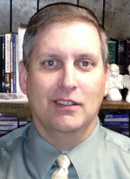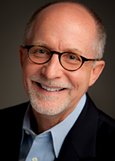West Texas A&M: Here or there
It is still really hard for me to believe I’m back from East Asia. Partly because it is still a battle to be here—all here—and to want to be here, find joy in being here and in this life. Partly, also, because I have a hard time remembering all the things that happened and the lessons I learned during those six months overseas.
A lot of times it feels like it didn’t really happen. It is hard to remember that my life was so different there when I’m immersed in the college student/working/BSM/church/busy American life again. Sometimes, because I’m doing the same things I was doing before I left, it feels like this is what I’ve always been doing—but that I should be doing more. It’s as if I didn’t leave; I didn’t learn lessons; I wasn’t doing anything over there; I didn’t really do work for the Lord or his kingdom; I didn’t really change.
But I did.
I left. I learned. I worked and labored. I changed—all thanks to and by the Lord’s grace.
But it is hard to remember that sometimes. It is hard to believe that sometimes, too.
My life there looked a lot different. My friends, how we did ministry, my home, my time, my responsibilities—all looked different than it does now.
Now, rather than full-time ministry, I’m back to full-time college life. Trying to split my time between classes, homework, studying, working, ministry, BSM, church, family and friends—and trying to be OK with it. Trying to remember that we can give the Lord glory in all that we do, in word or deed, in eating or drinking, in college in Texas or serving in East Asia.
So, why has that been so hard? Why has it been so hard to find the purpose and joy in being here? Why has it been a struggle to fight against feeling like I’m wasting my time and not doing any work for the Lord? Why has it been so hard to love my life here and the people the Lord has given me to love, share with and pour into?
Is it bad that I loved my life and ministry there? That I miss that life? Those friends? The person I was there?
Of course not. But I’m the same person here, too.
My life may look a lot different—and my friends, ministry, time, and responsibilities may, too. But God is no different. Here or there, God is the same. And who I am in him is, too.
It is easy to look back and want that life again—to want to be there again.
And when I stay there— in that place of comparing here and there, the things I love and miss about there to the things I don’t love about here—I’m missing what God wants me to do and see here. I’m allowing my joy to be contingent on my location, title and the things I’m doing.
It isn’t the things I’m doing or the place where I am that give me joy, purpose or meaning.
It is Christ.
Whether serving overseas full time for six months or being a full-time college student, the value in who I am or what my specific “title” may be is found in Christ, not in what I am, where I’m at, or what I’m doing. My value and identity in Christ doesn’t waver or change. And he calls me to himself above all else—not a place, position or title.
By seeking Christ and keeping my eyes fixed on him, I can run the race with endurance and joy—here or there.
My life may look different now—the people, the ministry, the place, my title and responsibilities—but Christ remains the same yesterday and today and forever—here or there. And I can be joyful and serve him, minister and proclaim his truth, and desire and seek his glory and praise above all and in all things—here or there—because he is here and there.
Mackenzie, a student at West Texas A&M University, served with Go Now Missions in East Asia. Her last name is withheld for the continued security of those with whom she served.

 As I started my descent, still very close to the summit, the ground moved beneath me and threw me forward, causing me to be cast over the side of the mountain. I fell several hundred feet, grasping at anything to stop my fall. As I slid, I finally came to a stop by hanging onto a large rock. Then I realized my shoulder and both legs were broken. My head also was injured, and the skin on my face and arm were scraped by lava rock. The only thing I could think of was how mad my wife was going to be. She told me not to climb this mountain, because I would fall.
As I started my descent, still very close to the summit, the ground moved beneath me and threw me forward, causing me to be cast over the side of the mountain. I fell several hundred feet, grasping at anything to stop my fall. As I slid, I finally came to a stop by hanging onto a large rock. Then I realized my shoulder and both legs were broken. My head also was injured, and the skin on my face and arm were scraped by lava rock. The only thing I could think of was how mad my wife was going to be. She told me not to climb this mountain, because I would fall.


